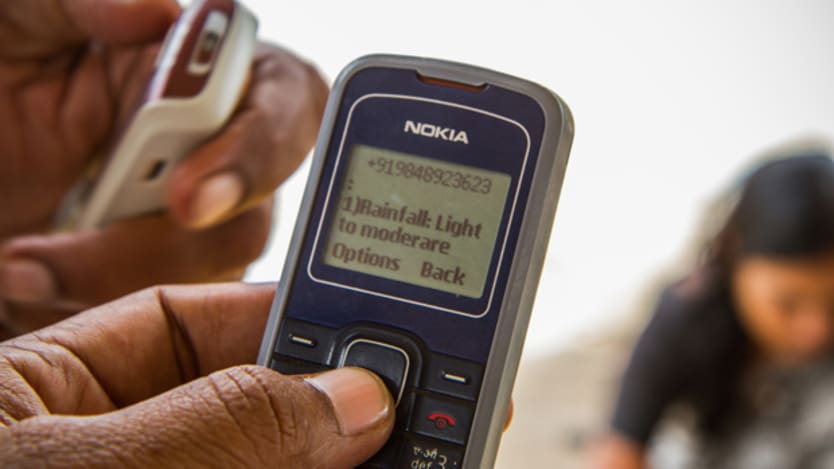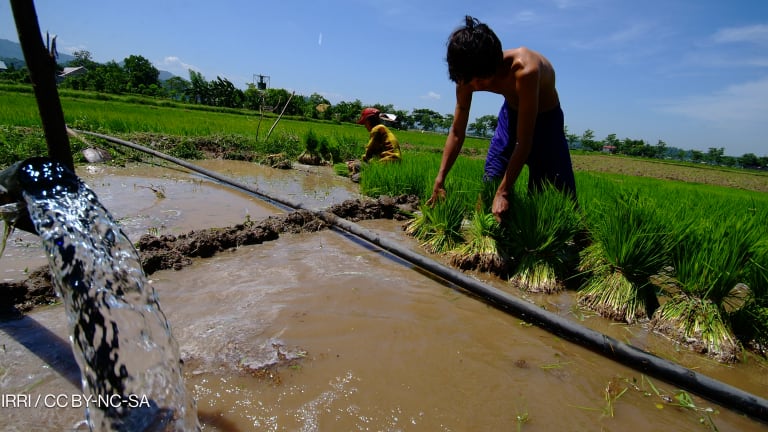
Nearly one out of every seven people on earth suffers from chronic hunger or food insecurity. The good news is agriculture and food systems have done a good job in making it possible to produce and deliver enough food to markets to ensure the world’s population consumes sufficient food for productive and healthy lives. This bad news is, unfortunately, these systems do not work adequately for everyone.
See more #FeedingDev articles:
• From food aid to nutritious, locally produced food: A look at fortifying flour in Ethiopia
• Food security and nutrition in Africa’s cities
• Food security: 3 major private sector approaches
• 5 ways to deliver nutrition through cash crop standards
If you work in international development, you likely already know that location, poverty, barriers to education, negative health outcomes and decision-making restrictions due to age or gender contribute to the hunger divide. You might wonder: With all of these other problems, what does climate change have to do with anything? Trust me, it makes things worse.
Here are four ways climate change is causing world hunger:
• Production may be less predictable. Without high-tech irrigation systems, most farmers in developing countries depend on rainfall. In regions of the world where rain has declined, crops fail. In places where the arrival or departure of seasonal rainfall has shifted, farmers either plant crops too early or too late, missing the highest rainfall. Even for farmers with access to irrigation or state-of-the art weather information, catastrophic storms and droughts will result in production failures.
• Supplies to markets could be less predictable. If production levels fall, the supplies entering markets may also fall. These drops in supply could affect prices for crops — and the livestock that consume crops — and may occur in both developed and developing countries.
• Greater risks to those less able to sustain risk. Women are often those at greatest risk as they tend to be the least educated, and own fewer assets and less wealth. High education levels, access to adequate and diverse food throughout the year, adequate early warning systems, and adequate assets, wealth and insurance will often enable people — especially women and vulnerable groups — to cope better with and address the impact of unpredictable weather events. Even if severe storms destroy people’s homes, crops and livelihoods, people with these assets and capabilities can often rebuild their lives quickly after a shock.
• Traditional agriculture — a way of life that supports food security — is dying out. In many countries and regions, mobile pastoralists who depend entirely on their livestock herds for their lives and livelihoods are losing their animals to droughts and diseases. Traditional low-input farming is also becoming more difficult due to unpredictable rainfall patterns.
We must all understand climate change is changing the game. And, it is the new normal. Here are a few things Land O’Lakes International Development is doing about it:
We assess the likely impact of climate change. When designing our strategic approaches to agriculture and food security programs, we integrate activities that help build assets and incomes. For instance, we build the capacity of pastoralists to maintain the health of their livestock herds, create market opportunities that maximize the value of animals sold, provide livestock microinsurance where possible, support animal nutrition through fodder production, and provide income earning opportunities for those who must transition out of pastoralism.
We guide farmers in livelihood diversification. We help farmers produce crops that will help them cope with floods, droughts and other disasters by diversifying their production. We train farmers to produce crops such as vegetables, fruits and legumes, and livestock products such as milk, meat, eggs and fish that will help ensure they have various options to fall back on if one of them fails.
We guide farmers to climate-smart strategies. It’s a simple idea: Adjust production to make it more adaptable to new climate patterns. This may include promotion of seed varieties that require less water, survive better during times of stress or are drought resistant.
Join the conversation at our LinkedIn group!
Disaster preparedness: a new approach. We build climate awareness among farmers by connecting them with meteorological societies and provide trained farmers with weather monitoring equipment. This also helps meteorologists monitor weather indicators closer to farmers’ fields, thus creating opportunities to understand the actual growing conditions with which farmers must cope. We also help farmers learn how to manage severe weather events and raise flood or storm alarms so that households can evacuate in time. This includes ensuring that women, children and the elderly have time to reach rally points on higher ground.
The realities of climate change and their impact on food security are here to stay. They are a significant cause of world hunger. As we work to improve food security, we must also devise the means for those we work with to cope effectively. In other words, we must work together to ensure the populations we serve are resilient with respect to climate change or our strategies will ultimately fail.
Want to learn more? Check out Feeding Development's campaign site and tweet us using #FeedingDev.
Feeding Development is an online conversation hosted by Devex in partnership with ACDI/VOCA, Chemonics, Fintrac, GAIN, Nestlé and Tetra Tech to reimagine solutions for a food-secure future from seed and soil to a healthy meal.








